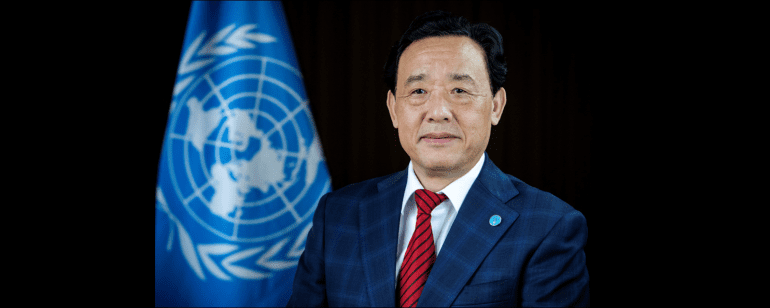- Qu Dongyu, FAO Director-General, discusses AI’s transformative potential in agrifood systems at the B7 meeting in Rome.
- AI represents more than a technological shift, driving profound economic and social changes.
- FAO recognizes AI’s ability to benefit various populations and improve efficiency and sustainability.
- Digital agriculture offers advantages like better pricing data, reduced food loss, enhanced safety, and increased adoption of sustainable practices.
- The B7 meeting, hosted by Confindustria in Rome, gathered business federations from G7 members and the EU.
- FAO emphasizes collaborative efforts with governments, academia, private sectors, and civil society to maximize AI’s benefits.
- Qu highlights the importance of addressing energy consumption in agrifood systems for decarbonization by 2050.
- Private-sector actors urged to increase climate action and accountability in their supply chains.
Main AI News:
Artificial Intelligence (AI) and the digital revolution are poised to revolutionize global agrifood systems, asserted Qu Dongyu, Director-General of the Food and Agriculture Organization (FAO), during the Business Federations of the G7 (B7) meeting in Rome. Qu emphasized that AI represents not merely a technological shift but a profound economic and social transformation with far-reaching implications. FAO recognizes AI’s potential to deliver widespread benefits, enhancing efficiency and sustainability across various populations and sectors.
Digital agriculture, Qu noted, holds the promise of fundamentally altering food production, distribution, and consumption dynamics. This transformation could offer significant advantages to farmers and stakeholders, including access to better pricing data, reduced food loss and waste, improved food safety, and increased adoption of sustainable practices and technologies.
The meeting, hosted at Confindustria, Italy’s main business association headquarters, brought together key business and industrial federations from G7 members and the European Union. Annually, B7 presents its recommendations on priority topics to the G7 presidency—in this instance, held by Italy. Notable attendees included Italy’s deputy Prime Minister, Antonio Tajani, and CEOs from prominent international corporations.
At a session focused on forging new pathways for global cooperation, FAO’s Director-General, alongside Mathias Cormann, Secretary-General of the Organization for Economic Cooperation and Development (OECD), underscored the importance of collaborative efforts to maximize the benefits of such transformative innovations. FAO advocates for comprehensive strategies, stressing the need for synergy among governments, academia, private sectors, civil society, and international organizations, all grounded in ethical principles.
Qu highlighted energy as another crucial area requiring collaboration, emphasizing that achieving decarbonization by 2050 hinges on addressing energy consumption within agrifood systems. Furthermore, he called upon private-sector entities to bolster their commitment to climate action and demonstrate greater accountability throughout their supply chains and interactions with communities in sourcing countries.
Conclusion:
The insights shared by FAO’s Director-General underscore the profound impact of AI on agrifood systems, signaling a significant shift in how food is produced, distributed, and consumed globally. For businesses operating in this market, embracing AI-driven innovations and adopting comprehensive strategies that prioritize sustainability and collaboration will be imperative to thrive in the evolving landscape. Moreover, addressing energy consumption and enhancing climate action throughout the supply chain will not only align with global sustainability goals but also strengthen corporate responsibility and resilience in the face of environmental challenges.

